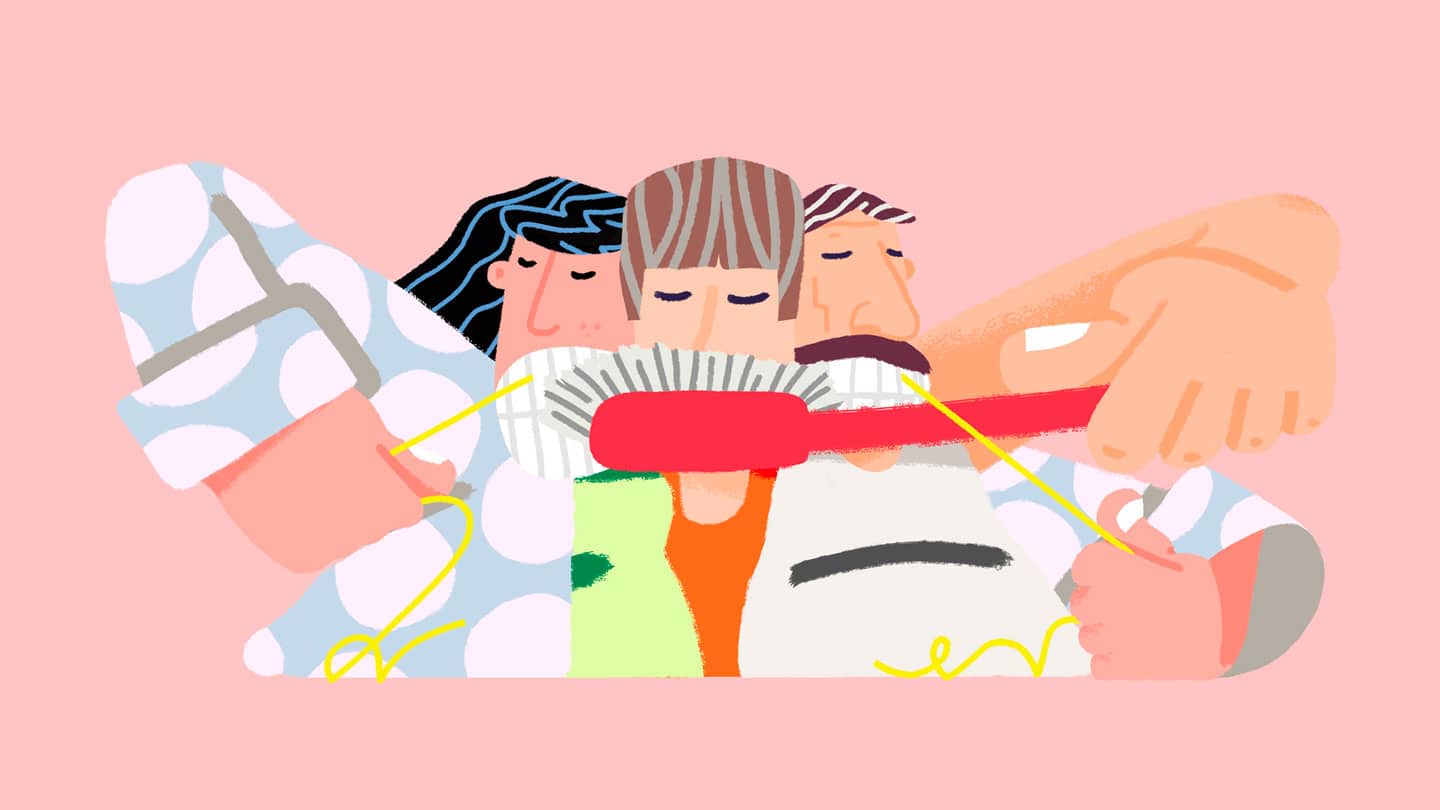Mouth piercings are fairly common, in part because they are small and easy to hide. Unfortunately, people often decide on an inner mouth piercing (tongue, cheek, labret, smiley, etc.) without understanding the risks to their teeth and gums. Let’s take a closer look at mouth piercings and the risks involved.
The inside skinny on mouth piercings
- Mouth piercings can cause a whole array of dental issues,
- It’s important to make an appointment with a dental professional before getting a piercing,
- Regular dental appointments are key to monitor how your piercing affects your oral health (gap between your teeth, tooth movement, tooth fissures, gum disease, etc.).
What are the different types of mouth piercing?
Mouth piercings are common in cultures worldwide. From fashion accessory to ceremonial object to sacred symbol, mouth piercings can have a whole range of meanings. They can also be placed in numerous locations in your mouth. Common piercings include:
- tongue,
- labret,
- Madonna,
- Medusa,
- snakebite,
- spiderbite.
What serious risks can mouth piercings cause?
There are risks involved in any piercing, anywhere on your body. Professional piercers can provide guidance and will ensure the piercing procedure is hygienic. But it’s important to make sure you choose a piercer who follows the rules. We strongly recommend using a professional piercing parlor and talking to your dental hygienist first.
Mouth piercings come with several serious risks:
- Local infections (swelling, pus, fever, warts, herpes, etc.)
- Systemic infections (tetanus, HIV, hepatitis B or C, etc.)
- Toxic shock syndrome (poisoning, allergic reactions to common metals, etc.)
- Bacteria can enter your bloodstream and infect your heart, brain, and other organs.
What are the other risks of mouth piercings?
In addition to these serious but relatively rare risks, piercings can cause:
- Bleeding, hemorrhage,
- Pain and swelling, which can make it hard to breathe, swallow, talk, or eat,
- Increased saliva production,
- Sensitivity to heat, spicy foods, etc.,
- Loss of taste,
- Cysts or tearing,
- Persistent bad breath,
- Loss of feeling (if a nerve is hit) or an unpleasant numb or prickling sensation,
- Swallowing or aspirating broken piercing jewelry.
How do mouth piercings affect your teeth?
We’ve said it before and we’ll say it again. Before you get a mouth piercing, it is absolutely essential to consult your dental hygienist to discuss its potential effect on your teeth. Some kinds of mouth piercing can cause tooth damage, including:
- Tooth wear from rubbing against the piercing jewelry,
- Broken or chipped teeth or damaged fillings due to the piercing jewelry repeatedly hitting your teeth as you bite, chew, or sleep,
- Gum irritation, swelling, and bleeding,
- Gum recession, leading to sensitivity and potentially to root cavities (gum recession is permanent – treating it requires a gum graft).
What do dentists really think about mouth piercings?
Dentists, dental hygienists, and orthodontists all agree that mouth piercings can cause a whole range of problems by rubbing and hitting your teeth and gums.
If you still feel the urge to get a mouth piercing, it’s important to see a dental professional first to identify the best, lowest-risk piercing location.
And once you have the piercing, regular appointments with your dental hygienist are more important than ever to monitor your mouth for signs of tooth and gum problems.
Mouth piercings are unsafe if you:
- are pregnant,
- are allergic to the piercing equipment (nickel, latex, etc.),
- have a blood clotting disorders or hemophilia,
- are on blood thinning medication.
[widget id=”custom_html-19″]



